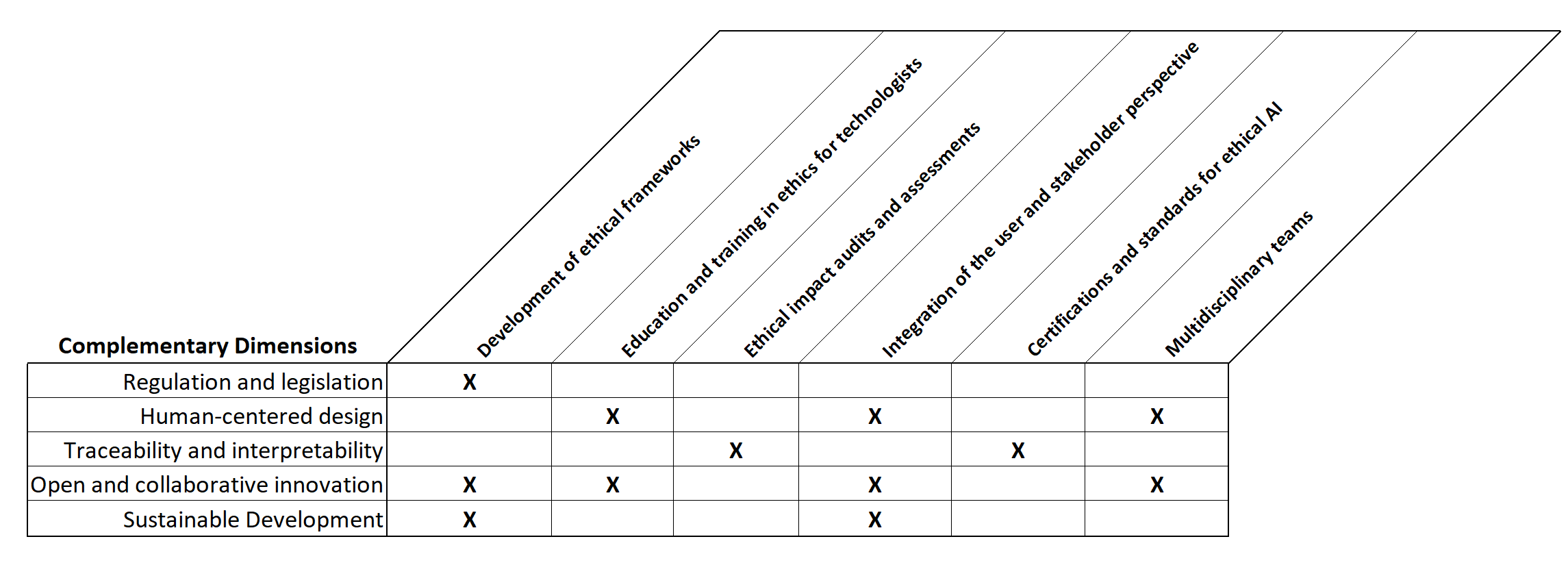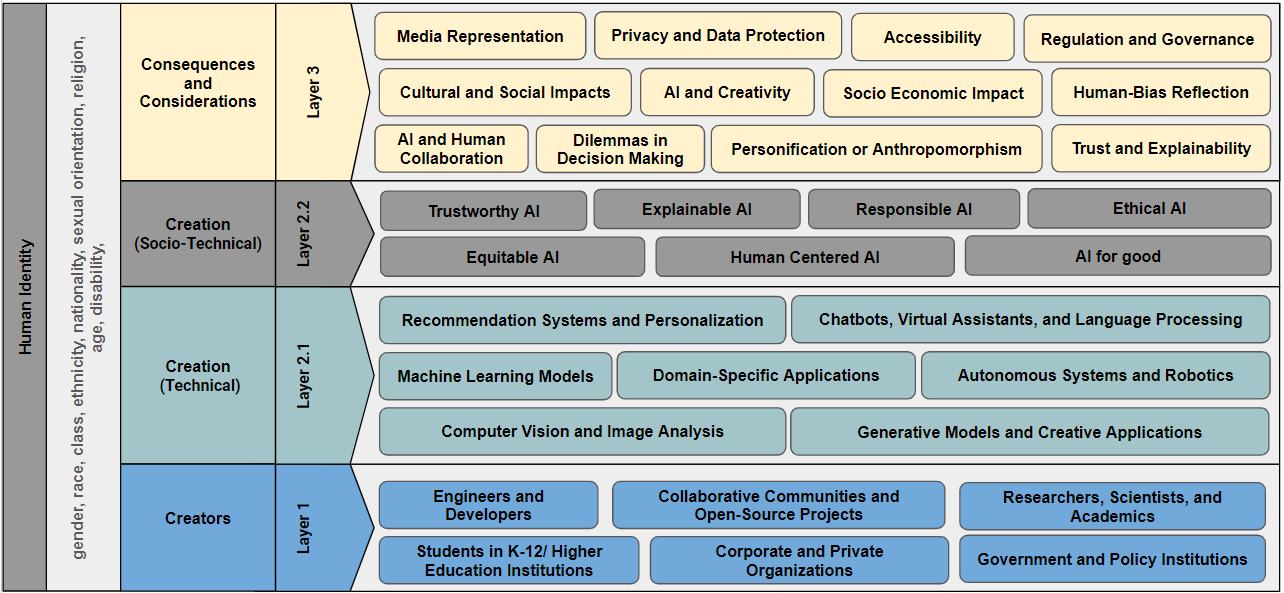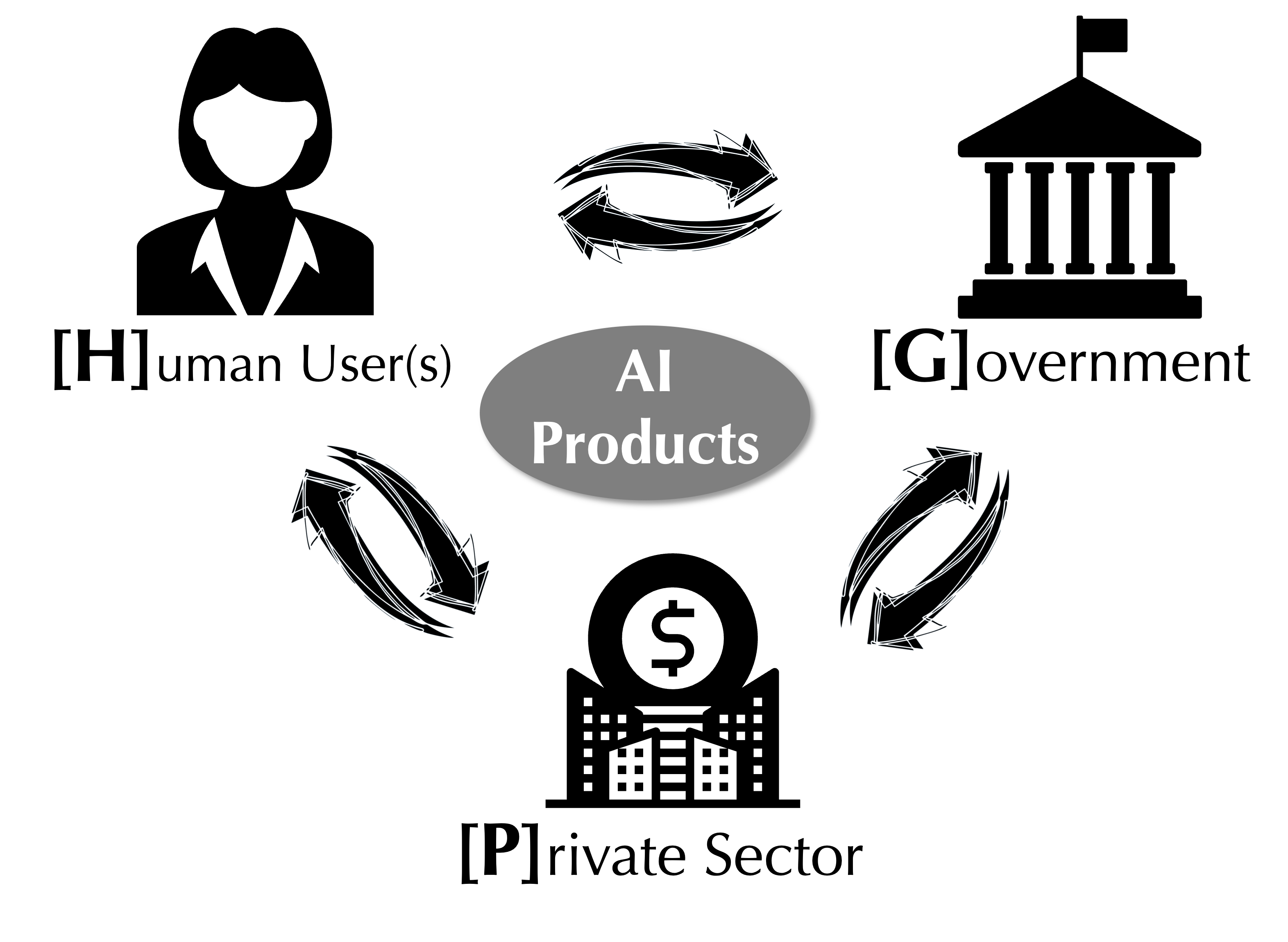Towards an Ethical and Inclusive Implementation of Artificial Intelligence in Organizations: A Multidimensional Framework
2405.01697

0
0

Abstract
This article analyzes the impact of artificial intelligence (AI) on contemporary society and the importance of adopting an ethical approach to its development and implementation within organizations. It examines the technocritical perspective of some philosophers and researchers, who warn of the risks of excessive technologization that could undermine human autonomy. However, the article also acknowledges the active role that various actors, such as governments, academics, and civil society, can play in shaping the development of AI aligned with human and social values. A multidimensional approach is proposed that combines ethics with regulation, innovation, and education. It highlights the importance of developing detailed ethical frameworks, incorporating ethics into the training of professionals, conducting ethical impact audits, and encouraging the participation of stakeholders in the design of AI. In addition, four fundamental pillars are presented for the ethical implementation of AI in organizations: 1) Integrated values, 2) Trust and transparency, 3) Empowering human growth, and 4) Identifying strategic factors. These pillars encompass aspects such as alignment with the company's ethical identity, governance and accountability, human-centered design, continuous training, and adaptability to technological and market changes. The conclusion emphasizes that ethics must be the cornerstone of any organization's strategy that seeks to incorporate AI, establishing a solid framework that ensures that technology is developed and used in a way that respects and promotes human values.
Get summaries of the top AI research delivered straight to your inbox:
Overview
- This paper proposes a multidimensional framework for the ethical and inclusive implementation of artificial intelligence (AI) in organizations.
- The framework aims to address key concerns around the use of AI, such as technocriticism, the role of different stakeholders, and the need for trustworthy and sustainable AI practices.
- The paper explores how organizations can navigate the challenges and opportunities presented by AI to foster a more ethical and equitable future.
Plain English Explanation
The paper discusses the importance of implementing AI in organizations in a way that is ethical and inclusive. It presents a framework with multiple dimensions to help organizations address concerns around the use of AI.
One key concern is technocriticism, which refers to the skepticism and criticism towards the increasing role of technology in our lives. The framework aims to understand the perspectives of different stakeholders, such as employees, customers, and the broader community, and how they are impacted by the use of AI.
The paper also emphasizes the need for trustworthy AI that is transparent, accountable, and respects individual AI identity. It suggests that organizations should consider the ethical and sustainable implications of their AI practices, not just the potential business benefits.
By adopting this multidimensional framework, organizations can navigate the complex landscape of AI and work towards a more ethical and inclusive implementation of this technology.
Technical Explanation
The paper proposes a multidimensional framework for the ethical and inclusive implementation of AI in organizations. The framework consists of five key dimensions:
-
Technocriticism and Key Actors: This dimension explores the skepticism and criticism towards the increasing role of technology in our lives, known as technocriticism. It also examines the perspectives and interests of different stakeholders, such as employees, customers, and the broader community, and how they are impacted by the use of AI.
-
Trustworthy AI: This dimension focuses on the need for AI systems that are transparent, accountable, and respect individual AI identity. It suggests that organizations should consider the ethical and sustainable implications of their AI practices, not just the potential business benefits.
-
Inclusive AI Governance: This dimension addresses the importance of inclusive decision-making processes in the development and deployment of AI systems. It emphasizes the need to involve diverse stakeholders, including underrepresented groups, in the governance of AI.
-
AI-Human Collaboration: This dimension explores the relationship between humans and AI, and how organizations can foster effective collaboration between the two. It considers issues such as job displacement, skill development, and the overall impact of AI on the workforce.
-
Organizational Change and Leadership: This dimension focuses on the organizational changes and leadership required to implement the proposed framework. It highlights the importance of creating a culture that values ethical and inclusive AI practices, as well as the role of top-level management in driving this change.
The paper provides a comprehensive approach to addressing the challenges and opportunities presented by AI in organizations, with the goal of fostering a more ethical and inclusive implementation of this technology.
Critical Analysis
The paper presents a well-structured and comprehensive framework for the ethical and inclusive implementation of AI in organizations. However, it is important to consider some potential limitations and areas for further research.
One limitation is the general nature of the framework, which may need to be tailored to the specific needs and contexts of different organizations. The paper does not provide detailed guidance on how to apply the framework in practice, and further research may be needed to explore case studies and best practices.
Additionally, the paper does not delve deeply into the technical aspects of AI systems and how they can be designed and deployed in a way that aligns with the proposed ethical and inclusive principles. More research may be needed to explore the technical challenges and solutions for implementing trustworthy and inclusive AI systems.
Another area for further research is the long-term societal impact of AI and how organizations can contribute to the responsible development of this technology. The paper touches on this briefly, but a deeper exploration of the broader implications of AI on employment, inequality, and social well-being could provide valuable insights.
Overall, the paper offers a valuable framework for organizations to consider as they navigate the complex landscape of AI implementation. By addressing the ethical and inclusive dimensions of AI, organizations can work towards a future where the benefits of this technology are shared more equitably.
Conclusion
The proposed multidimensional framework in this paper provides a comprehensive approach for organizations to implement AI in an ethical and inclusive manner. By addressing key concerns around technocriticism, trustworthy AI, inclusive governance, human-AI collaboration, and organizational change, the framework aims to help organizations navigate the challenges and opportunities presented by AI.
The framework emphasizes the importance of considering the perspectives of diverse stakeholders, fostering transparency and accountability, and ensuring that the benefits of AI are shared equitably. By adopting this approach, organizations can work towards a future where AI is implemented in a way that is sustainable, responsible, and aligned with the values of the broader community.
As organizations continue to explore the potential of AI, this paper offers a valuable roadmap for ensuring that the implementation of this technology is done in a way that is ethical, inclusive, and beneficial for all.
This summary was produced with help from an AI and may contain inaccuracies - check out the links to read the original source documents!
Related Papers

Hacia una implementaci'on 'etica e inclusiva de la Inteligencia Artificial en las organizaciones: un marco multidimensional
Ernesto Giralt Hern'andez

0
0
The article analyzes the impact of artificial intelligence (AI) on contemporary society and the importance of adopting an ethical approach to its development and implementation within organizations. It examines the critical perspective of French philosopher 'Eric Sadin and others, who warn of the risks of unbridled technologization that can erode human autonomy. However, the article also recognizes the active role that various actors, such as governments, academics and civil society, can play in shaping the development of AI aligned with human and social values. A multidimensional approach is proposed that combines ethics with regulation, innovation and education. It highlights the importance of developing detailed ethical frameworks, incorporating ethics in the training of professionals, conducting ethical impact audits, and encouraging stakeholder participation in AI design. In addition, four fundamental pillars for the ethical implementation of AI in organizations are presented: 1) Integrated values, 2) Trust and transparency, 3) Empowering human growth, and 4) Identifying strategic factors. These pillars cover aspects such as alignment with the company's ethical identity, governance and accountability, human-centered design, continuous training and adaptability in the face of technological and market changes. It concludes by emphasizing that ethics must be the cornerstone of the strategy of any organization that aspires to incorporate AI, establishing a solid framework to ensure that the technology is developed and used in a way that respects and promotes human values.
5/2/2024

AI and Identity
Sri Yash Tadimalla, Mary Lou Maher

0
0
AI-empowered technologies' impact on the world is undeniable, reshaping industries, revolutionizing how humans interact with technology, transforming educational paradigms, and redefining social codes. However, this rapid growth is accompanied by two notable challenges: a lack of diversity within the AI field and a widening AI divide. In this context, This paper examines the intersection of AI and identity as a pathway to understand biases, inequalities, and ethical considerations in AI development and deployment. We present a multifaceted definition of AI identity, which encompasses its creators, applications, and their broader impacts. Understanding AI's identity involves understanding the associations between the individuals involved in AI's development, the technologies produced, and the social, ethical, and psychological implications. After exploring the AI identity ecosystem and its societal dynamics, We propose a framework that highlights the need for diversity in AI across three dimensions: Creators, Creations, and Consequences through the lens of identity. This paper proposes the need for a comprehensive approach to fostering a more inclusive and responsible AI ecosystem through the lens of identity.
4/12/2024

The Journey to Trustworthy AI- Part 1: Pursuit of Pragmatic Frameworks
Mohamad M Nasr-Azadani, Jean-Luc Chatelain

0
0
This paper reviews Trustworthy Artificial Intelligence (TAI) and its various definitions. Considering the principles respected in any society, TAI is often characterized by a few attributes, some of which have led to confusion in regulatory or engineering contexts. We argue against using terms such as Responsible or Ethical AI as substitutes for TAI. And to help clarify any confusion, we suggest leaving them behind. Given the subjectivity and complexity inherent in TAI, developing a universal framework is deemed infeasible. Instead, we advocate for approaches centered on addressing key attributes and properties such as fairness, bias, risk, security, explainability, and reliability. We examine the ongoing regulatory landscape, with a focus on initiatives in the EU, China, and the USA. We recognize that differences in AI regulations based on geopolitical and geographical reasons pose an additional challenge for multinational companies. We identify risk as a core factor in AI regulation and TAI. For example, as outlined in the EU-AI Act, organizations must gauge the risk level of their AI products to act accordingly (or risk hefty fines). We compare modalities of TAI implementation and how multiple cross-functional teams are engaged in the overall process. Thus, a brute force approach for enacting TAI renders its efficiency and agility, moot. To address this, we introduce our framework Set-Formalize-Measure-Act (SFMA). Our solution highlights the importance of transforming TAI-aware metrics, drivers of TAI, stakeholders, and business/legal requirements into actual benchmarks or tests. Finally, over-regulation driven by panic of powerful AI models can, in fact, harm TAI too. Based on GitHub user-activity data, in 2023, AI open-source projects rose to top projects by contributor account. Enabling innovation in TAI hinges on the independent contributions of the open-source community.
4/9/2024
🏅
On the role of ethics and sustainability in business innovation
Maria Fay, Frederik F. Flother

0
0
For organizations to survive and flourish in the long term, innovation and novelty must be continually introduced, which is particularly true in today's rapidly changing world. This raises a variety of ethical and sustainability considerations that seldom receive the attention they deserve. Existing innovation adoption frameworks often focus on technological, organizational, environmental, and social factors impacting adoption. In this chapter, we explore the ethical and sustainability angles, particularly as they relate to emerging technologies, artificial intelligence (AI) being a prominent example. We consider how to facilitate the development and cultivation of innovation cultures in organizations, including budding startups as well as established enterprises, through approaches such as systems thinking.
4/12/2024